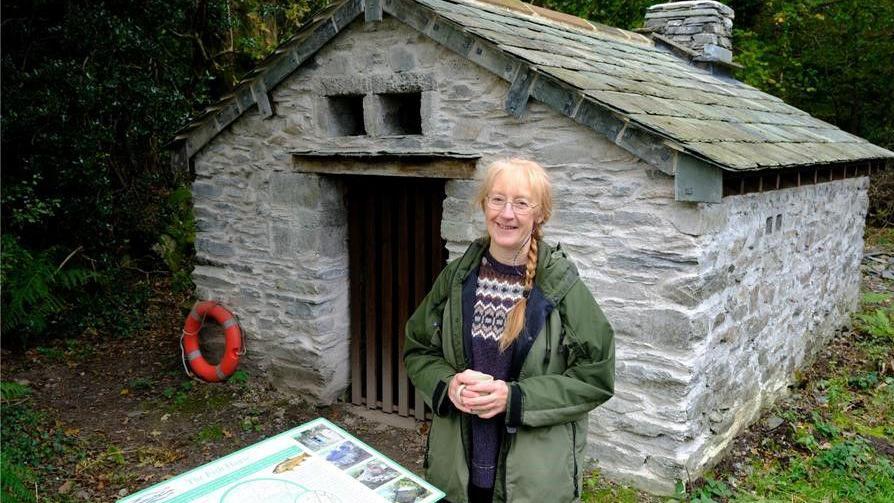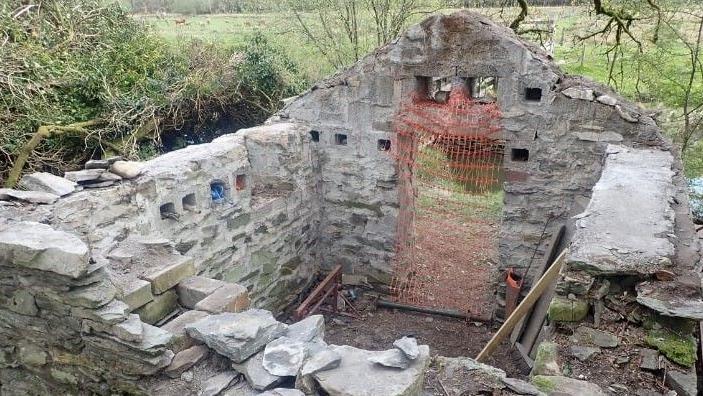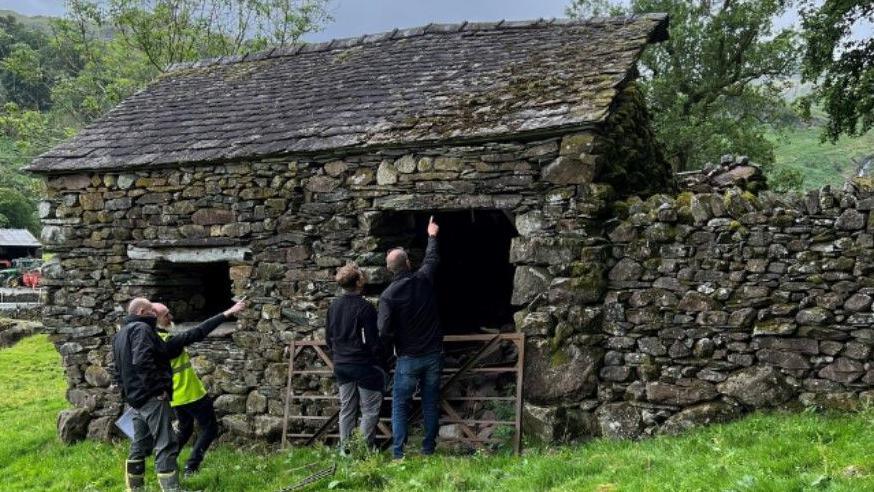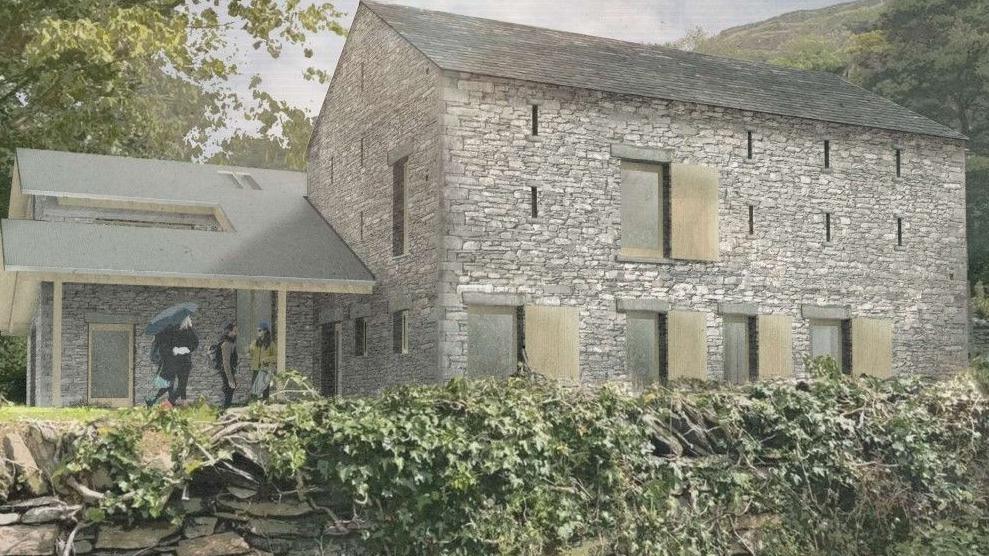Centuries-old rare fish house restored

Owner Pam Mills thinks the building was used to smoke fish or to sell them to people passing
- Published
A centuries-old rare fish house, which was in danger of becoming a ruin, has been restored.
The stone building, next to Rusland Pond, is the only known structure of its type in South Lakeland, Cumbria.
Eliza Hodgson, farming officer for Lake District National Park, said restoring the fish house "ensures an iconic piece of the landscape remains for years to come".
"This is particularly important as another fish house in the area, also found on old maps, hasn't survived," she added.
It was rebuilt with the help of a government grant, from a fund called Farming in Protected Landscapes, which is reserved for national parks and Areas of Outstanding National Beauty.

The fish house, pictured before repairs were carried out
The stone structure is owned by Edward and Pam Mills, who found references to it in a map of 1851.
It sits on the edge of an ancient woodland, next to Fish House Bridge, which crosses the Rusland Pool, a tidal river.
Ms Mills says there would have been a "plentiful supply of fish" in the past including eels, salmon and trout.
"They may have used the building to smoke the fish, or as a base to sell fish to locals and passing merchants using either the tidal river or the route across the bridge," she said.
The Fish House is now on a public footpath and in the 1800s it may well have been the main trading route between Bouth, then an important centre of trade with five inns, and Kendal.
An information panel has been put up with more information about its history.
Follow BBC Cumbria on X, external, Facebook, external, Nextdoor, external and Instagram, external. Send your story ideas to northeastandcumbria@bbc.co.uk.
Related topics
More stories from BBC North East and Cumbria
- Published7 October 2024

- Published12 December 2023
